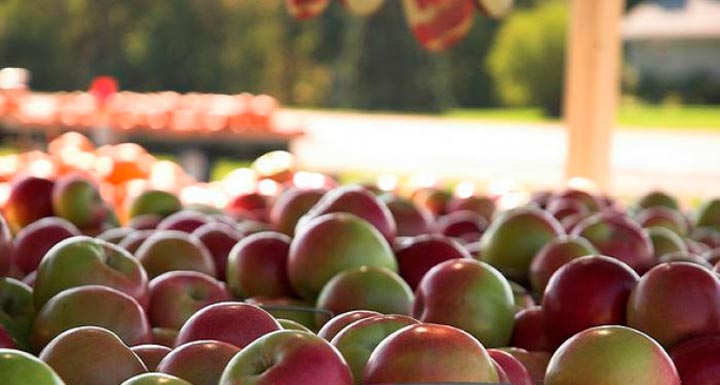
Virginia eyes broader array of exports to Cuba
Long before the thaw in U.S.-Cuba relations, Virginia farm products helped feed the people of the Communist regime, making the state one of the top three U.S. exporters to Cuba.
The man who brokered most of those agricultural deals believes the relationships Virginia have cultivated over the years will pay dividends with increased farm exports, as well as non-agricultural products.
Secretary of Agriculture and Forestry Todd Haymore said he’s been mindful of the prospect of a changed relationship with Cuba and the broader array of Virginia products that could be exported as he’s worked with Cuban officials.
Haymore said he has invested his time with the Cuban government, visiting annually over the past eight years, with an eye on better relations between the two nations.
“And making sure that when the relationship between the United States and Cuba changed, that Virginia was in a really good position to build on what we had done through agricultural exports,” he said.
Virginia trails only Georgia and Louisiana in the value of farm exports to Cuba, which is less than a three-day sail from the Port of Virginia. Farm exports from Virginia to Cuba peaked two years ago at $60 million but have dipped to $40 million because of Cuba’s weakened economy.
Soybeans, poultry and apples are the primary Virginia farm exports to Cuba.
A 2000 law relaxed restrictions on U.S. food and medical exports to Cuba. Farm exports now account for $350 million in rice, corn, soybeans and frozen chicken parts, the American Farm Bureau estimates.
Since the Obama administration’s announcement this month to relax curbs on trade with Cuba, U.S. businesses have taken note, seeing another marketplace for their products 90 miles off the coast of Florida. Even Haymore says he’s fielded calls from non-agricultural businesses since the announcement.
Those opportunities are not likely to occur overnight, with Congress responsible for ending the Cold War-vintage embargo. Cuba will have to do its part as well by signaling its desire to accept foreign products.
Despite the earlier lifting of restrictions on farm products, there remain many bumps in the road to get those apples and soybeans to Cuba.
A key handicap is that exporters must deal with Cuban government officials rather than their counterparts, and the U.S. embargo has not helped, either. The U.S., for instance, requires Cuba to pay cash in advance before a cargo ship leaves Virginia waters. Other hurdles include using third party, non-U.S. banks to deal directly with Cuban banks.
Henry Childs of Crown Orchard Co. has been exporting Red and Golden Delicious apples to Cuba for 10 years. Cubans have a large appetite for apples, an exotic fruit in their hot climate.
But Crown Orchard apples, grown on 1,000 acres in Albemarle and Nelson counties, haven’t been shipped to Cuba for the past two years.
“I’d be very interested in continuing” exports to Cuba, Childs said. Crown Orchard also exports to Finland, Norway, Central America and Mexico, as well as the East Coast.
There’s a simple reason exports have become part of Childs’ business, which dates back four generations.
“The United States raises more apples than people in the United States can consume, so it’s an advantage for us to grow apples for export,” Childs said.
For economic reasons, Cuba has turned to other countries with cheaper and inferior apples, Haymore said.
Growing Virginia exports is part of Haymore’s job description, and he has Gov. Terry McAuliffe’s backing to continue his world travels in pursuit of new markets.
A spokeswoman for McAuliffe said he’s hopeful the easing of relations with Cuba will strengthen the state’s trade relations with the country.
“The governor’s goal is to make Virginia the East Coast Capital of agricultural and forestry exports, which will benefit the entire Virginia economy,” Rachel Thomas wrote in an email.
For now, Haymore said, there are no plans to open a Virginia trade office in Havana, but he believes the state has positioned itself to prosper as trade restrictions are eased.
“It’s our next-door neighbor, for lack of a better term, and I believe that at some point the doors are going to open further for non-agricultural products to be exported there,” Haymore said. “I’d like to think that Virginia could be standing right at the front of the line.”

